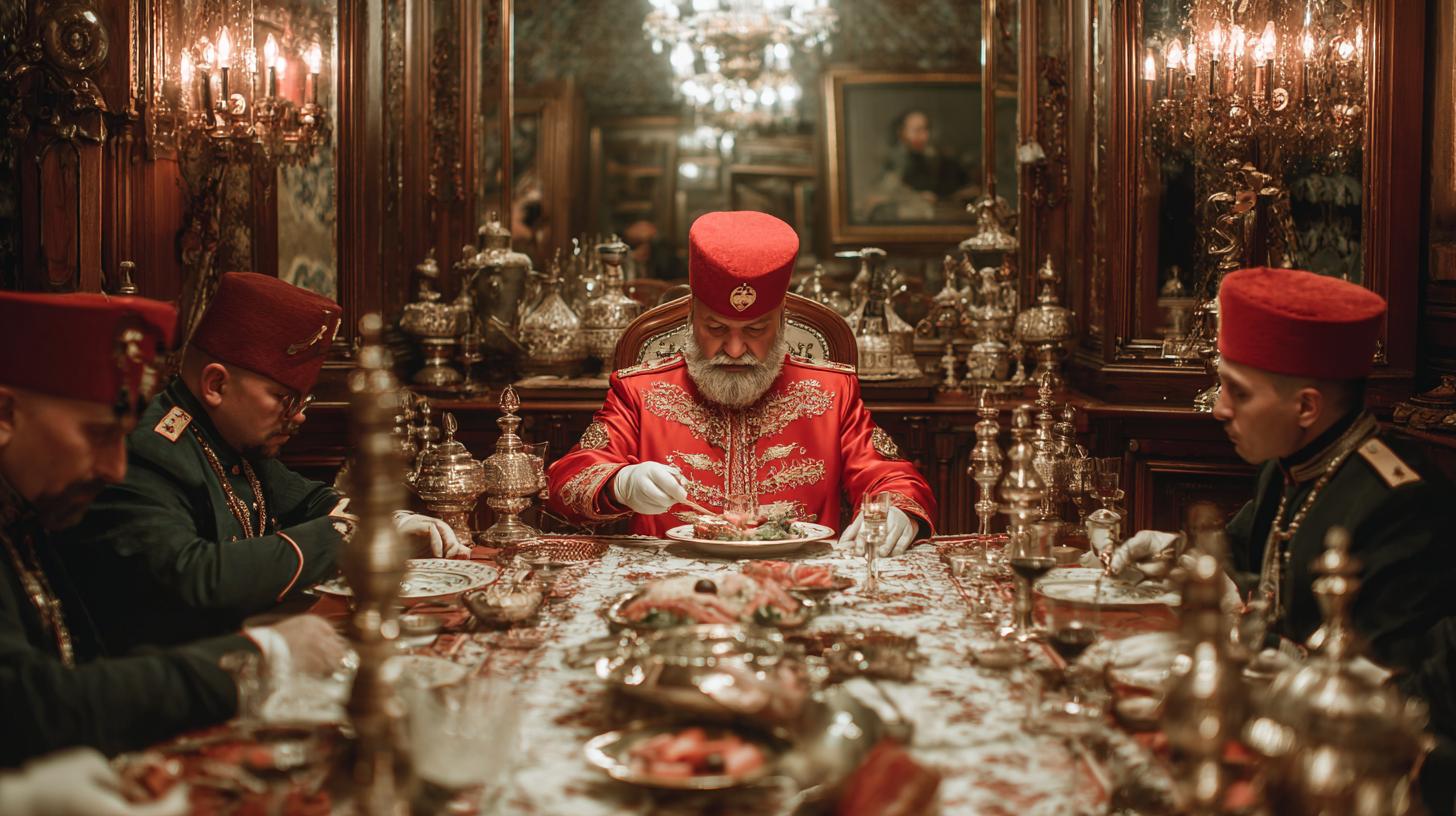When we explore the rich and vibrant culture of Georgia, one aspect that immediately catches the eye is the significance of social gatherings and the deep-rooted tradition of communal dining. Central to this experience is the figure known as the tamada, which translates roughly to “toastmaster” in English. The tamada is more than just someone who proposes toasts during a meal – this role embodies leadership, wisdom, poetry, and the spirit of Georgian hospitality. Understanding the tamada’s role in Georgian dining opens a window into the social customs, values, and artistry that define Georgian culture.
The Origins and Cultural Significance of the Tamada

The tradition of the tamada dates back centuries and is tightly woven into the fabric of Georgian life. Georgian dining, especially the feast known as a supra, is a highly ritualized event that reflects the country’s hospitality, respect for elders, and shared history. The tamada emerges as a key figure during these feasts, guiding the event, encouraging eloquence and camaraderie, and strengthening social bonds through carefully crafted toasts.
Unlike formal speakers or event hosts in many cultures, the tamada occupies a space that blends ceremony with conversation. Their role is not merely functional but symbolic. The tamada acts as the voice of the gathering, representing collective sentiment while also injecting humor, wisdom, and sometimes emotion. They keep the feast flowing harmoniously, ensuring everyone feels included in the moment.
The Role and Responsibilities of the Tamada
In a Georgian supra, the tamada holds several important responsibilities that go beyond simply raising a glass. Here are some of the key duties commonly associated with the tamada:
- Initiating the Supra: The tamada usually begins the feast with a welcoming toast, setting the tone for the event and inviting everyone to appreciate the significance of the gathering.
- Leading the Toasts: Throughout the meal, the tamada delivers a series of toasts dedicated to a range of subjects – family, friendship, honor, love, and sometimes even politics or history.
- Maintaining Order and Flow: The tamada orchestrates the rhythm of the feast, deciding when to drink, when to talk, and ensuring the continuity and lively interaction among guests.
- Upholding Tradition and Etiquette: The tamada reminds guests of customs, introduces special prayers or sayings, and sustains the cultural significance of the meal.
- Encouraging Participation: The toastmaster often invites other guests to speak or respond, turning the feast into a collective ceremonial performance.
These responsibilities require the tamada to be not only eloquent but also sensitive to the social dynamics. The tamada’s ability to read the room, to know when to introduce humor or seriousness, and to foster unity is what makes their role so essential.
The Qualities That Make a Good Tamada
Not just anyone can step into the role of tamada. Certain qualities make for an effective toastmaster who can honor this unique tradition:
- Eloquence: Mastery of language and poetic expression allows the tamada to craft meaningful and memorable toasts, often rich with metaphor and historical references.
- Charisma: A natural ability to engage guests and command attention, without dominating the conversation, helps make the supra lively and enjoyable.
- Wisdom: Knowledge of Georgian culture, history, and etiquette underpins the deeper significance of the toasts and overall feast.
- Emotional Intelligence: The tamada must be attuned to the mood and comfort of guests, able to read social cues and manage tensions or conflicts diplomatically.
- Leadership: Confidence and decisiveness enable the tamada to maintain order during sometimes long and boisterous gatherings.
Typically, the tamada is someone whom the group respects for their insight and character – often an elder or a person with strong rhetorical abilities.
The Supra: The Setting for the Tamada’s Influence
The feast known as supra is the quintessential setting where the tamada’s role unfolds. A supra is not simply a meal; it is a highly ritualized event that can last hours, sometimes well into the night. Multiple dishes, generous amounts of wine, and layers of conversation and storytelling merge to create a unique social experience.
What Happens at a Supra?
Here’s an overview of how the role of the tamada fits into the supra framework:
| Phase of Supra | Activity | Tamada’s Role |
|---|---|---|
| Beginning | Arrival of guests, initial welcome | Opens with a welcoming toast, sets the mood |
| Meal service | Multiple courses served, wine poured | Leads toasts commemorating family, friendship, and more |
| Middle | Stories, songs, cultural references | Facilitates storytelling, invites guest speakers |
| End | Final toasts and farewells | Delivers a closing toast reflecting on the feast’s meaning |
An essential part of a supra is that the tamada controls the sequence and timing of the toasts. Everyone drinks only when the tamada finishes a toast and raises their glass. This ritual reinforces communal harmony and encourages attentiveness and respect.
The Art of Toasting in Georgian Culture

In Georgia, toasts are not random expressions but carefully constructed speeches with artistic and often philosophical meaning. The tamada’s toasts frequently draw on historical anecdotes, cultural traditions, and moral reflections.
Common Themes of Georgian Toasts
The table below highlights some common themes and typical focuses of a tamada’s oration:
| Theme | Description |
|---|---|
| Family | Celebrating kinship, lineage, and familial bonds |
| Friendship | Highlighting the importance of camaraderie and loyalty |
| Health and Wellbeing | Wishing good health and prosperity to all present |
| Peace and Unity | Calling for harmony within the community and world |
| Honor and Memory | Paying tribute to ancestors and shared history |
| Love | Reflecting on the power and significance of love |
Not only do these themes demonstrate the depth of Georgian values, but they also reveal how the tamada uses the supra as a platform for reflection and connection. The toastmaster’s words weave together personal emotion and collective identity, making the feast a deeply meaningful event.
How the Tamada’s Role Reflects Broader Georgian Values

One fascinating aspect of the tamada’s position is how it embodies wider societal ideals in Georgia. The emphasis on community, respect for elders, hospitality, and oral tradition is palpable through the tamada’s function.
Hospitality as a Core Georgian Principle
Georgians pride themselves on their hospitality, and this smooths the social fabric of the supra. The tamada ensures that no guest feels left out and that everyone is part of a shared experience. This role demonstrates how Georgian hospitality is not passive but active – the tamada actively encourages engagement and warmth.
Respect and Hierarchy
The tamada’s selection also reflects hierarchical values. This person is often chosen because of their respected position, wisdom, or rhetorical skills, underscoring the respect accorded to those who contribute knowledge and leadership.
Oral Tradition and Storytelling
Georgian culture places a strong emphasis on oral history, poetry, and storytelling. The tamada channels this tradition by transforming a meal into a live narrative, where every toast might recall a historic tale or immortalize a shared memory.
The Modern Tamada: Tradition in Contemporary Contexts
While the tamada’s role is steeped in tradition, it continues to thrive in modern Georgian life. From formal weddings to casual family gatherings, the toastmaster remains a pivotal figure.
Adaptations and Changes
In recent years, changes in social environments and global influences have impacted how the tamada operates. For example, toasts might be less formal or shortened for convenience. Still, the respect for the tamada’s role largely endures.
Moreover, the tamada’s skill has expanded to include multilingual abilities, especially when catering to international guests who attend Georgian celebrations, showcasing Georgian culture to the world.
Learning the Role of Tamada
Becoming an effective tamada often involves informal mentorship rather than formal training. Younger generations learn by observing elders and gradually practicing the art of toastmaking and hosting sugras. This mentorship preserves the oral and social customs that define the tamada’s responsibilities.
Comparing the Tamada to Toastmasters in Other Cultures
While many cultures have a concept of a toastmaster or master of ceremonies, the Georgian tamada is unique in its intensity and cultural embedding.
| Aspect | Georgian Tamada | Other Cultures’ Toastmasters |
|---|---|---|
| Primary Role | Guide and leader of ceremonial feasts (supras), delivering poetic toasts | Generally moderation or event management, keeping order and timing |
| Role Duration | Throughout extended social feast, often hours long | Typically limited to event beginning and transitions |
| Cultural Significance | Deeply symbolic, ties to national heritage and social values | Primarily functional, less symbolic |
| User Interaction | Invites and includes other guests in participatory toasting | Mostly directs the event flow and speakers |
The Georgian tamada’s role is uniquely integral to the dining experience and turns what could be a simple meal into a cultural performance that strengthens community ties.
How to Appreciate a Georgian Supra and the Tamada’s Role as a Visitor
If you ever have the opportunity to join a Georgian supra, appreciating the tamada’s role can greatly enrich your experience. Here are some tips to be a respectful and engaged guest:
- Pay Attention: Listen closely to the tamada’s toasts – they often hold deeper meanings and anecdotes worth savoring.
- Participate Respectfully: When invited to toast or speak, take time to say a few thoughtful words, even if brief.
- Respect the Ritual: Drink only when the tamada signals the moment, preserving the flow and spirit of the supra.
- Observe Customs: Notice seating arrangements and interactions, as these often hold unspoken social cues.
Engaging with the supra this way helps visitors not only enjoy the feast but also understand the intrinsic role of the tamada as both leader and cultural custodian.
Famous Tamadas in Georgian Culture
Throughout history and contemporary times, some tamadas have gained reputations for their eloquence and presence. Sometimes these individuals are poets, community leaders, or even political figures known for representing Georgian values at social functions.
While many tamadas perform their role privately among families and friends, some have become public figures thanks to media or cultural events showcasing Georgian traditions to wider audiences. Their ability to inspire and unite through words reveals just how powerful the position can be.
Practical Tips for Aspiring Tamadas
For those interested in learning the art of being a tamada, here are some practical steps that support success in this important social role:
- Study Georgian history, literature, and proverbs to enrich your speeches.
- Practice public speaking with an emphasis on rhythm, tone, and clarity.
- Observe experienced tamadas at sugras and emulate their style and timing.
- Develop emotional sensitivity to read guests’ moods and adapt accordingly.
- Foster humility and respect, balancing authority with friendliness.
- Prepare a repertoire of themes and example toasts adaptable to different moods.
Mastering the role takes time and dedication but contributes greatly to preserving one of Georgia’s most cherished cultural traditions.
The tamada, as the toastmaster’s role in Georgian dining, transcends the simple concept of raising a glass. It is a complex, fascinating cultural institution that encapsulates storytelling, leadership, communal values, and eloquence. Whether you are a visitor curious about Georgian customs or someone seeking to understand deeper layers of social interaction, the tamada offers a remarkable example of how dining becomes much more than a meal—it becomes a ceremony of connection and culture.